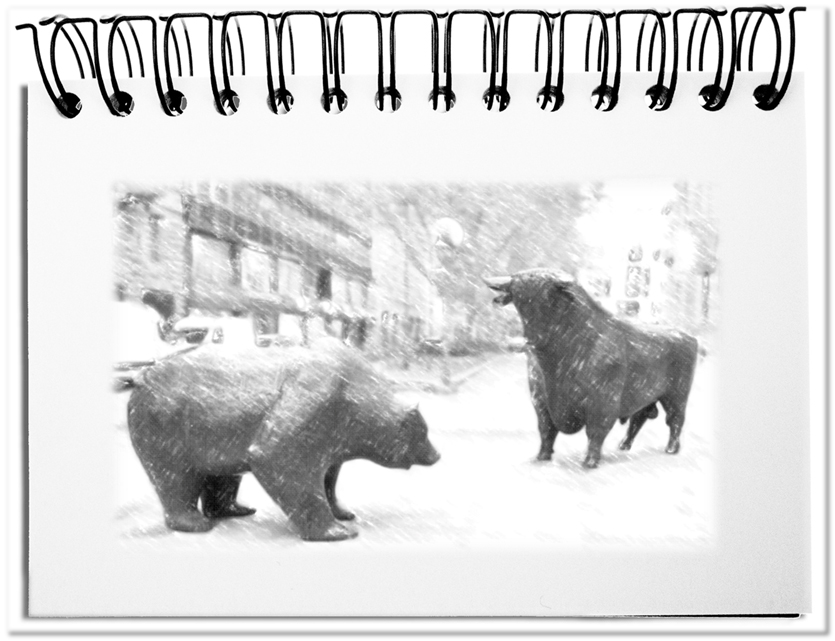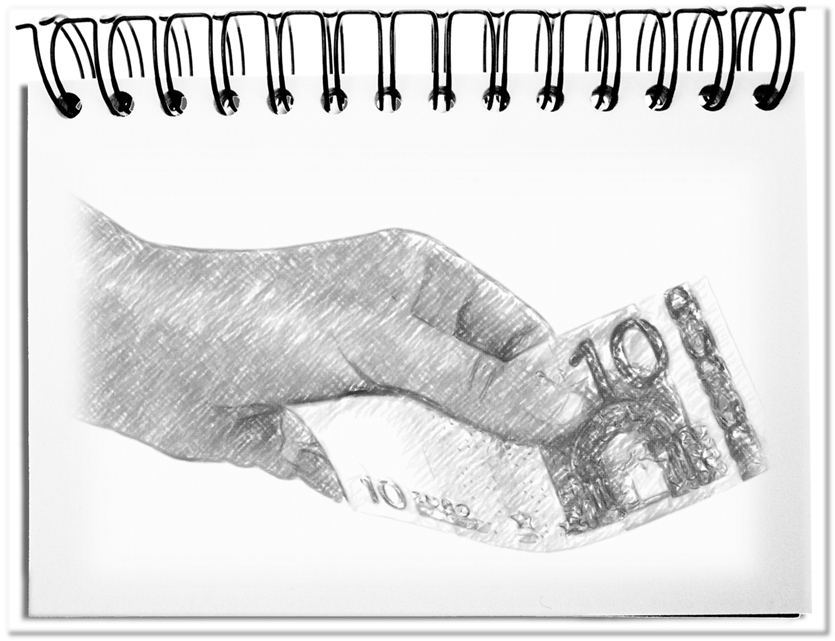Shortly after the crash of the Wall Street in New York (1929) Bertolt Brecht found the right words in the Three penny Opera: “What is robbing a bank compared to founding one?” Thus, he demonstrated visionary instinct. Because of the government debt, every Germans have a calculated debt with the financial system of more than 29,000 €; every US citizen even more than $ 57,000 – inclusive all babies and retirees. At the same time, some people call the classical financial institutes as system-relevant and support therefore the banks. As a result, their losses are continuously socialized and profits privatized. With it the moment is reached to take a look at today’s grown system-relevant addictions.
Just as a drug dealer makes the junkie slowly addicted to the drug, the banks have built up over a long time the following system. The result is the same as in a casino – the bank always wins.
- Pay little interest and take lots of interest
Already the easy-to-understand idea of charging interest rates for lending money required early on the regulation of the money business in order to prevent usury – sometimes better, sometimes worse. At the same time the banks took over the service of securely storing the money that one did not need, paid for it a certain interest rate and lent the money for a higher interest rate to borrowers, who needed money. The differences created the profits of the bank. The management of this exchange is systemically relevant – the neutral broker creates more occasions. - Encourage consumption on tick
Loans served to finance kingdoms, states, and eventually businesses. With the emergence of the consumer society, there discovered also the consumer loans: for housebuilding, car purchasing, and holiday trips and meanwhile for all areas of consumption. By enabling such loans, the banks encouraged the economy that in turn created jobs. This offer of consumer loans has system relevancy- at least in a world of consumption. - Fees on everything (account, credit cards, balance, transactions)
In addition to the interest rates, the banks eventually discovered the approach of getting paid for any service. An overseas transfer has always cost a lot (additionally to the rate of the currency exchange). In the meantime, the banks start charging all areas: for all kinds of money cards as well as account, transfer fees inclusively for personal transfers at a bank counter. Particularly clever is the idea to offer customers a membership card that provides some of the old services for free – of course with some pre-requisites beneficial for the bank. Since regular payments (like the rent, the telephone bill, and loans) are transacted via the own bank account, the bank strengthens as a middleman its system relevancy. - Reduce and possibly eliminate cash
Since banks offer less and less “physical” services, it becomes important to close the back door of an account, the cash. For this purpose it will be abolished successively. Without cash, the values only exist in the banks’ data storages. Thus, after the abandonment of the gold standard, we reach the zenith of the virtualization of the financial values. Our wealth is now subject to fluctuating courses, which are constantly changing. So, if the cash itself has no more material value, you can also get rid of it. As soon as only the data storages of the banks represent our monetary possessions, the last person should be clear about the system relevancy of banks. - What is still to come?
In the future, ALL money actions will be chargeable. The highest fees will be asked by those banks that can not change themselves as fast as the other players. The Internet enables new business models – from Linden Dollars, Bitcoins to microfinancing, crowdfunding or private loans. These transformations mean the end for classical financial institutes, which believe that they can finance themselves through excessive fees and do not adapt to the new circumstances. The last convulsions will demand a lot of the system. This means for the customers to find a way out of the systematically defined dependency from the banks – the account, the saving interests, the standing orders, the transfers, the money investments, etc. The insistence on the apparent system relevancy will shift the system – away from the classical financial institutions.
Bottom line: For millennia’s, the economy worked without system-relevant banks. Today, the banks are in a deadlock. The current efforts to find new income sources will exploit the meanwhile established dependencies, until the customers get broken. The credit system, the consumption, the services, the cash, and all that is called system-relevant, will be replaced by new providers with new business models, like microfinancing, crowdfunding or private loans. The basis of the economy, the money that is only based on faith, will be replaced by new means of payment – no matter how, main thing is getting out of the system-relevant addictions of today.


